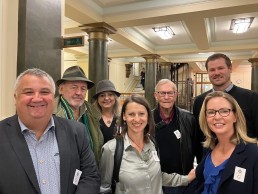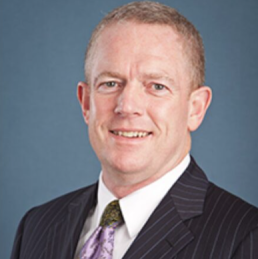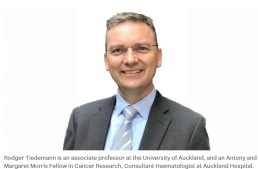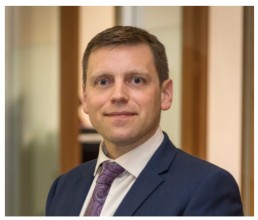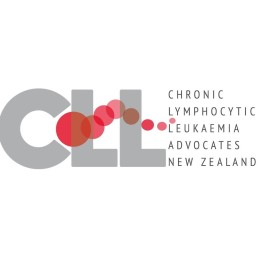New Zealand’s lack of access to modern medicines
A new poll commissioned by Medicines NZ has ignited political debate over New Zealand’s access to modern medicines, revealing that many citizens feel lives are at risk due to underfunding.
Conducted by Perceptive, the survey of 992 people found that 43% believe the government should fund medicines “much more,” and nearly a third know someone who has paid out-of-pocket for unfunded treatments. Access to medicines is seen as worse than in countries like Australia and the UK, and 36% of respondents said increased funding would influence their vote in the next election.
The findings have prompted finger-pointing among political parties, especially as National previously campaigned on improving access to cancer treatments. Despite a budget boost for Pharmac, New Zealand still lags behind other developed nations, and the issue is expected to be a major election-year flashpoint
Please read the article here: https://www.stuff.co.nz/nz-news/360780977/lives-are-risk-new-poll-thats-sparked-political-debate-and-finger-pointing
Zanubrutinib remains unfunded in New Zealand
Zanubrutinib has been publicly funded and accessible for the treatment Chronic Lymphocytic Leukaemia (CLL) in Australia for more than two years, offering patients a targeted therapy option with proven efficacy and tolerability.
Its availability across the Tasman highlights the growing disparity in access to innovative blood cancer treatments between Australia and New Zealand.
In light of the Government’s failure to deliver on its pre-election commitment to fund blood cancer medicines, this is a clear priority for advocacy ahead of next year’s general election.
Read more here: https://healthtree.org/cll/community/articles/zanubrutinib-leads-in-covalent-btk-inhibitors?
Budget 2025 leaves blood cancer patients behind
Blood cancer patients and advocates are outraged after Budget 2025 failed to allocate new funding for life-saving medicines. Despite last year’s $604M boost for Pharmac, no additional resources have been provided - leaving thousands without access to vital treatments.
Leukaemia & Blood Cancer NZ, the Blood Cancer Alliance, and the Cancer Society warn that the government is simply "re-celebrating" old funding while ignoring a growing backlog of unfunded medicines.
Patients like Rob Crozier, 77, CLL Advocates Trustee, continue to pay thousands for private insurance, while experts call this a "fundamental health policy failure" leading to avoidable deaths.
New Zealand ranks among the worst in the OECD for access to modern medicines. Advocacy groups demand urgent action - blood cancer patients cannot afford another year of waiting. #FundCancerMedicines #Budget2025Fail #NZHealthCrisis
Read more of the article here: https://www.rnz.co.nz/news/national/561987/budget-2025-leaves-blood-cancer-patients-behind
No funding for new blood cancer drugs in the foreseeable future
Rob Crozier, Trustee, sat in on the Budget yesterday in the faint hope that the Government would keep National’s promise to fund new cancer drugs. Rob was invited to join a group convened by Malcolm Mulholland of Patient Voice Aotearoa. We were all bitterly disappointed!
The Budget projects out for 4 years and there is no intention to fund new blood cancer drugs.
Rob spoke to Radio NZ yesterday and posted the following comment on both Stuff and NZ Herald websites:
“There is nothing in this budget for new blood cancer drugs. A promise was made to fund 13 new cancer drugs during the 2023 election campaign. In 2024, 13 of these drugs were funded - however they were all for solid tumours. Shane Reti, then Minister of Health, said that decisions on blood cancer would be delayed until the Cancer Control Agency had reported. They did so in October 2024. There are 24 blood cancer drugs funded in Australia that are not funded here. The absence of any increase for blood cancer drugs simply extends the broken promise made soon after the election”.
CLL Advocates Submission to the Health Select Committee on the Medicines Amendment Bill
Introduction
This submission is made by CLL Advocates NZ, an organisation representing the interests of Chronic Lymphocytic Leukaemia (CLL) patients and their families.
In New Zealand, approximately 2,800 people are diagnosed with blood cancer each year. This number encompasses leukaemia, lymphoma and myeloma. Leukaemia accounts for around 700 cases annually — the majority of these being CLL.
Part 1. Consent to distribute medicines by verification
We welcome this Bill and believe its introduction to be long overdue.
Implementing the proposed changes will speed up the verification pathway for medicines to be approved by Medsafe for use in New Zealand — reducing the time frame from as long as 2 years to 30 days where a particular medicine has already been approved by 2 recognised jurisdictions.
This will be of immense benefit to blood cancer patients who may be able to access medicines recommended by their haematologist, but which have not yet been funded by Pharmac. Regrettably, though, this access will only come about through self-funding, Give-a-Little pages, or health insurance where applicable.
There are many new drugs under development as CLL is the most common blood cancer world-wide and we therefore hope that this proposal might lead to a speedier process for such drugs to be funded by Pharmac. This will, of course, require political will along with appropriate funding for Pharmac.
As an aside, we urge the Government to give greater recognition to the fact that most of the new blood cancer drugs are self-administered at home leading to offsetting savings in the hospital system as fewer people need to be accommodated in Medical Day Wards occupying chairs and nurses’ time.
Part 2. Other amendments
Here we focus only on aspects of the Bill which directly impact blood cancer patients.
Nurse Practitioners: We welcome the proposed change whereby other medical professionals such as nurse practitioners will be able to prescribe approved medicines. We consider this to be of potential benefit to people living in rural areas but would caution that such approvals should only be made in consultation with a suitably trained medical specialist.
Funded Alternative Medicines: We welcome the proposal to allow the prescribing of alternative drugs listed on Pharmac’s pharmaceutical schedule when other funded drugs are in short supply.
Section 29: Again, we welcome the overall thrust of what is being proposed here. It is sometimes necessary to prescribe unregistered medicines for compassionate or other reasons and these amendments seem to facilitate that.
The proposed requirement for the importer or manufacturer to carry more of the burden of reporting on the prescription of unregistered drugs will also lighten the bureaucratic workload of our hospital specialists.
We are pleased that the proposed amendments do not appear to add impediments or burdensome reporting requirements to the prescription of off-label drugs. Off-label prescription is becoming increasingly important as the new generation drugs are able to target subgroup malignancies.
Here is the link to the Medicines Amendments bill: Medicines Amendment Bill
May 16 2025
Meeting with the new Acting CEO of Pharmac
On Friday 11th April 2025 Catherine Isaac, Chair of CLL Advocates NZ and Dr Ruth Spearing, Trustee, met with the new Acting CEO of Pharmac, Brendan Boyle along with the Chief Medical Advisor, Dr David Hughes and the Director of Pharmaceuticals, Geraldine MacGibbon. The aim of the meeting was to follow up on some of the issues that had been raised when Catherine and Ruth had met with Hon Paula Bennett, Chair of Pharmac and her colleagues, along with other members of the Blood Cancer Alliance, back in October of last year.
The major topic was whether Pharmac had made progress with the possibility of working with Health NZ where there was the potential for a particularly valuable nationally run trial which was not possible because of one drug not being funded. Pharmac has in the past enabled the previous DHBs to purchase such a drug enabling a very successful trial for Acute Myeloid Leukaemia to go ahead and is funding a couple of supportive care drugs for the CAR-T cell trials being run out of the Malaghan Institute. Trials will often not only offer cutting edge drugs to patients with great results but will also potentially save Health NZ a considerable amount of money. Unfortunately, the system is so siloed at the present time that this potential partnership between Pharmac and Health NZ does not occur and the huge benefits that could be realised, are lost.
As a result of our meeting and follow-up on this, David Hughes has undertaken to meet with Debra Matich from the Service Improvement and Innovation Directorate of Health NZ in early May to discuss this concept further.
Another topic that was covered was the time it has been taking to get minutes of meetings out - sometimes in excess of five months. The CEO apologised for this and undertook to ensure that the key decisions would be out within six weeks of the meeting and the full minutes within three months. The CEO was congratulated on the effort he had already made in the two weeks that he had been in post to engage with patient groups.
CLL Advocates Newsletter May 2025
Greetings
We are very pleased to let you know that CLL Advocates NZ is up and running again, reset and refreshed with new trustees and a sharp focus on our mission. After losing three of our five founding trustees it’s taken us some time to rebuild, but we’re pleased to introduce and welcome our three new trustees, Rob Crozier, Marc Pearce and Lisa Ryan, all New Zealanders living with CLL and with great skills to bring to our mission. Read about them here on our ‘About us’ page.
We’re also very fortunate to have Amy Holmes, Consultant Haematologist at St George’s Cancer Care Centre in Christchurch, as our Medical Director, in addition to the very valuable support of Ruth Spearing, a highly distinguished New Zealand haematologist and leading light in the world of clinical trials.
Our thanks for their contributions go to founding Trustee Dr Gillian Corbett, and Trustee Diane Ward who retired from their respective roles as Medical Adviser and Trustee last year.
Strategy workshop
Our board met last month in Wellington in person and with two via video link. Discussions centred round the future direction of CLLANZ, maintaining our focus, strengthening our alliances, increasing the number of people we reach and what our immediate activities should be.
Our meeting included two very helpful in-person sessions:
Dr Rob Weinkove, one of NZ’s leading CLL experts and a pioneer in CAR-T cell treatment, spoke on current and future CLL management in New Zealand and what we can do to help, and Todd Stephenson, ACT MP, who works closely with David Seymour on Pharmac, Medsafe and related health matters, updated us on ongoing Pharmac changes and opportunities to advocate for improvements in medicines access.
See a summary of Rob’s talk here
As a result of this latter discussion, we are preparing a submission in support of the Medicines Amendment Bill which proposes to speed up the process whereby Medsafe approves medicines for use in New Zealand if they have been approved by two recognised overseas jurisdictions. The bill would also enable more flexible approaches to the prescription and administration of medicines so that patients can get access to the medicines they need more efficiently. Submissions are due on 19 May.
Clinical trials
Our page on clinical trials is now being updated regularly, most recently on 15 April, so keep an eye on these if this is of interest to you.
Participation
Our organisation would benefit greatly from an influx of new people either by joining our Facebook page or by registering on our website. Although our Facebook group membership has doubled in the last two years (to 227) we are still only reaching about 10% of New Zealanders living with CLL. It’s important for us to get more people involved, be they patients or caregivers, as that adds weight to our voice when we’re lobbying for access to new treatments etc. Word of mouth is probably our most effective way of getting the message across. If you know of others with CLL please advise them of either or both of these options - our website and our CLL Facebook page and group.
Finally, we’re in the process of refreshing and updating our website, so if you have any ideas on how we can make this more useful please do get in touch at: info@clladvocates.org.nz
Till next time…. Stay well.
Catherine Isaac
On behalf of the Trustees
CLL Advocates NZ
‘New Zealanders are dying’: Specialist’s plea for blood cancer drug funding
Pharmac on Thursday opened consultation on allowing asthma patients easier access to inhalers - which if approved would exhaust the record $600 million cancer drug investment announced last year.
But there are already calls for the Government to stump up more.
Blood cancer patients weren’t covered by the promise and 59 haematologists - almost all the blood cancer specialists in the country - have signed a letter to the Government urging them to take urgent action on funding blood cancer medicines in this year’s Budget.
Haematologist Rodger Tiedemann has seen too many patients he can’t adequately help due to a lack of funding.
Read the article here: https://www.stuff.co.nz/politics/360658687/new-zealanders-are-dying-specialists-plea-blood-cancer-drug-funding
Perspectives on current and future CLL management in New Zealand by Prof. Dr Robert Weinkove 11 April 2025
Perspectives on current and future CLL management in New Zealand
A presentation by Prof. Dr Robert Weinkove, Haematologist at Wellington Hospital and Clinical Director at the Malaghan Institute.
Dr Weinkove was invited by the CLLANZ Trustees to join our strategic planning workshop held last week in Wellington to present his perspectives on current and future CLL management in New Zealand.
The following is a summary of his presentation:
- Pharmaceutical expenditure in NZ is relatively low compared to some other countries (e.g. Australia, the UK, the USA), and that NZ haematology services and Day Units are under pressure. He highlighted the July 2022 Te Aho o Te Kahu (Cancer Control Agency) report, “A vision for cancer treatment in the reformed health system”, which described a doubling of systemic anticancer therapy dispensing between 2011 and 2020. He also noted that due to population changes projected by Stats NZ, particularly a growing number of people > 65 years in the coming decades, the incidence of CLL can be expected to rise significantly.
- PHARMAC’s mandate requires them to contain medicine costs, and that for CLL this might favour fixed-duration therapies. PHARMAC will also consider other factors, such as hospital resources saved and equity of access, in their funding decisions. He noted that PHARMAC is not necessarily restricted to funding medicines within their formal license – for example, first-line venetoclax for TP53-disrupted CLL and obinutuzumab for relapsed CLL are both ‘off-label’ but are PHARMAC-funded. Pharmaceutical companies may be unwilling or unable to request PHARMAC reimbursement for off-label indications, but clinicians or patient groups can make applications for PHARMAC funding in these situations.
- Funding criteria are sometimes widened during PHARMAC consultations, citing the removal of the requirement for relapse within 36 months for PHARMAC-funded VenR for CLL, which was adopted during a recent consultation for venetoclax for AML.
- International 1st line CLL treatment recommendations from various organisations including ESMO, BCSH and the NCCN, either do not recommend chemoimmunotherapy at all, or restrict chemoimmunotherapy recommendations to FCR for fit CLL patients with mutated IGHV (and even then FCR is not the top recommendation).
- The European 2024 ESMO CLL recommendation which states, “…chemoimmunotherapy such as fludarabine–cyclophosphamide–rituximab (FCR) should only be considered for patients with a good genetic risk profile [defined as mutated immunoglobulin heavy chain variable (IGHV) status and no TP53 aberrations] and a non-complex karyotype and if targeted therapies are not reimbursed.” – and the IGHV mutation status test is not currently available in NZ.
- Australasian CLL treatment guidelines (last issued in 2023) are currently being reviewed, and the next update is also likely to recommend against chemoimmunotherapy.
- Data from the GLOW and FLAIR trials, found that ibrutinib & venetoclax is superior to chemoimmunotherapy (obinutuzumab/chlorambucil or FCR, respectively) in terms of progression-free survival (PFS).
- While FCR and ibrutinib/venetoclax had similar PFS within the subgroup of patients with mutated IGHV (N Engl J Med 2024; 390: 326-37), it may take many years (e.g. a decade or longer of follow-up) to know whether or not the two treatments result in differences in durable response rate within this subgroup. He noted that the fraction of patients this represents is low – only approximately 20% of patients getting first-line CLL therapy in NZ are likely to be (A) fit for full-intensity FCR, and (B) have IGHV mutation, and (C) lack TP53 mutation/disruption. He noted that there are now prospective clinical trial data suggesting that FCR is associated with a higher risk of secondary cancers than the newer targeted therapies such as ibrutinib and venetoclax. He felt that while there is equipoise in terms of efficacy of FCR versus ibrutinib/venetoclax for this group at present, many experts internationally feel that selecting a therapy of known carcinogenicity for this subset of fitter younger patients may not be appropriate.
- Data from a recent manuscript indicates that Māori have a higher age-adjusted incidence of CLL, and a higher CLL-specific mortality, than do Europeans in New Zealand (Cancer Epidemiology 2024; 93: 102656. doi:10.1016/j.canep.2024.102656). He noted that the July 2022 Te Aho o Te Kahu (Cancer Control Agency) report included a section on access barriers for Māori and specifically recommended systemic anticancer therapies that can be self-administered (e.g. oral therapies), to allow treatment closer to home.
- In terms of funding gaps in CLL treatments in New Zealand, the lack of funded first line targeted (non-chemotherapy-based) treatments is a major deficit.
Dr Weinkove’s personal view on priorities for funding of CLL treatments in NZ is as follows:
-
- Priority 1 (most urgent): First-line fixed-duration venetoclax and ibrutinib for all patient groups. Alternatives to venetoclax/ibrutinib could be obinutuzumab/venetoclax (but this requires intravenous administration, with Day Unit and Inpatient Ward resource implications), or venetoclax with a 2nd generation BTK inhibitor.
- Priority 2 (urgent): A funded treatment for patient's refractory to both venetoclax and a BTK inhibitor. This is likely to represent a growing group with high unmet need. Non-covalent BTK inhibitors (e.g. Pirtobrutinib or Nemtabrutinib) or BTK degraders (e.g. BGB-16673) appear to be very effective oral treatments in this setting.
- Priority 3 (strong preference): Funding of an alternative (2nd generation) BTK inhibitor instead of ibrutinib (e.g. Zanubrutinib or acalabrutinib), since these agents offer lower cardiac toxicity +/- improved efficacy.
- Other options (not as urgent but would offer benefits for many patients): Option of VenR re-treatment (would defer some non-covalent BTKi demand, see Priority 2); Option of a first-line continuous BTK inhibitor for frailer patients instead of fixed-duration venetoclax & ibrutinib; Choice between VenR or a continuous BTK inhibitor at first relapse.
Dr Weinkove:
- noted that others might express different priorities
- reported that he has participated in Advisory Boards, and/or acted as a speaker for, Janssen, Abbvie, MSD and BeiGene within the past 3 years.
CLL Advocates Facebook Group
Join the CLL Advocates Community – Support, Knowledge & Connection
The CLL Advocates private Facebook group is a dedicated space for individuals affected by Chronic Lymphocytic Leukaemia (CLL).
Whether you're newly diagnosed, undergoing treatment, a caregiver, or simply seeking reliable information, this group is here to offer support, shared experiences, and up-to-date insights.
We’re building a stronger, more informed community - but we need YOU! Connect with others, exchange knowledge, and be part of a network that empowers and advocates for better CLL care.
Join today and be part of the conversation. Together, we make a difference!
For more information please email: clladvocates@outlook.co.nz



